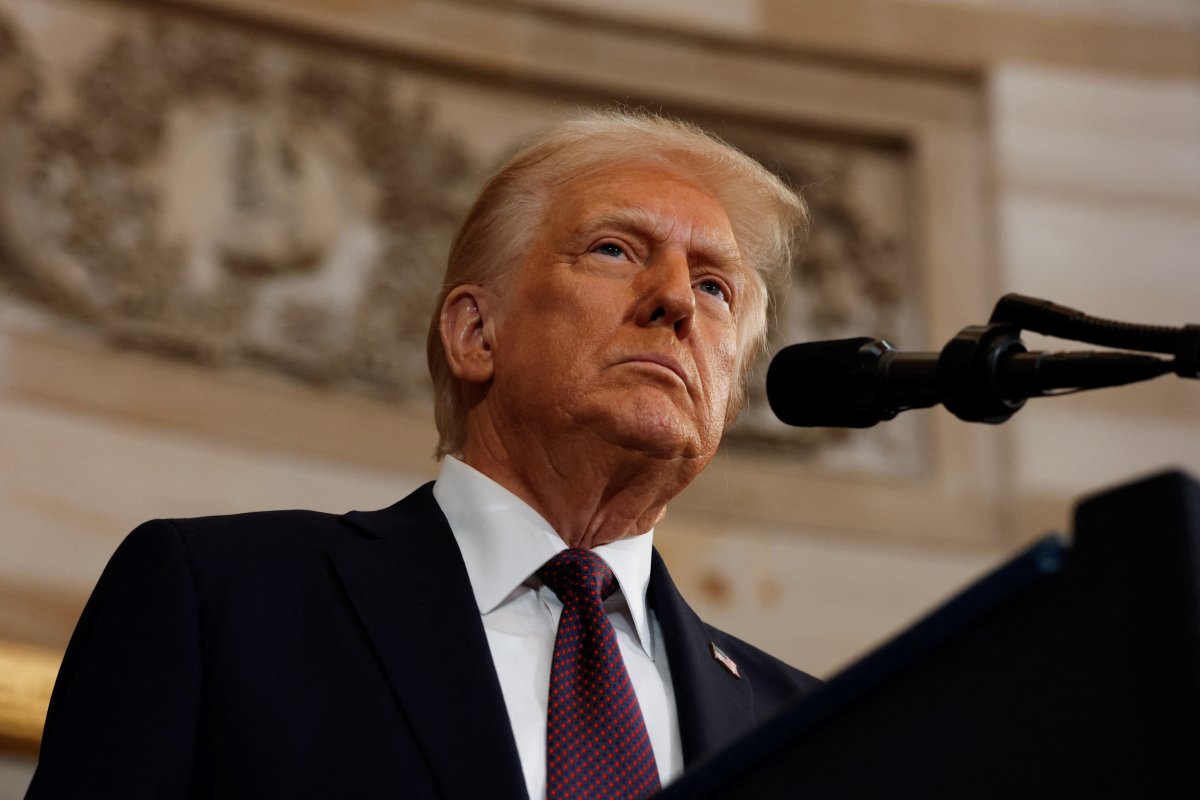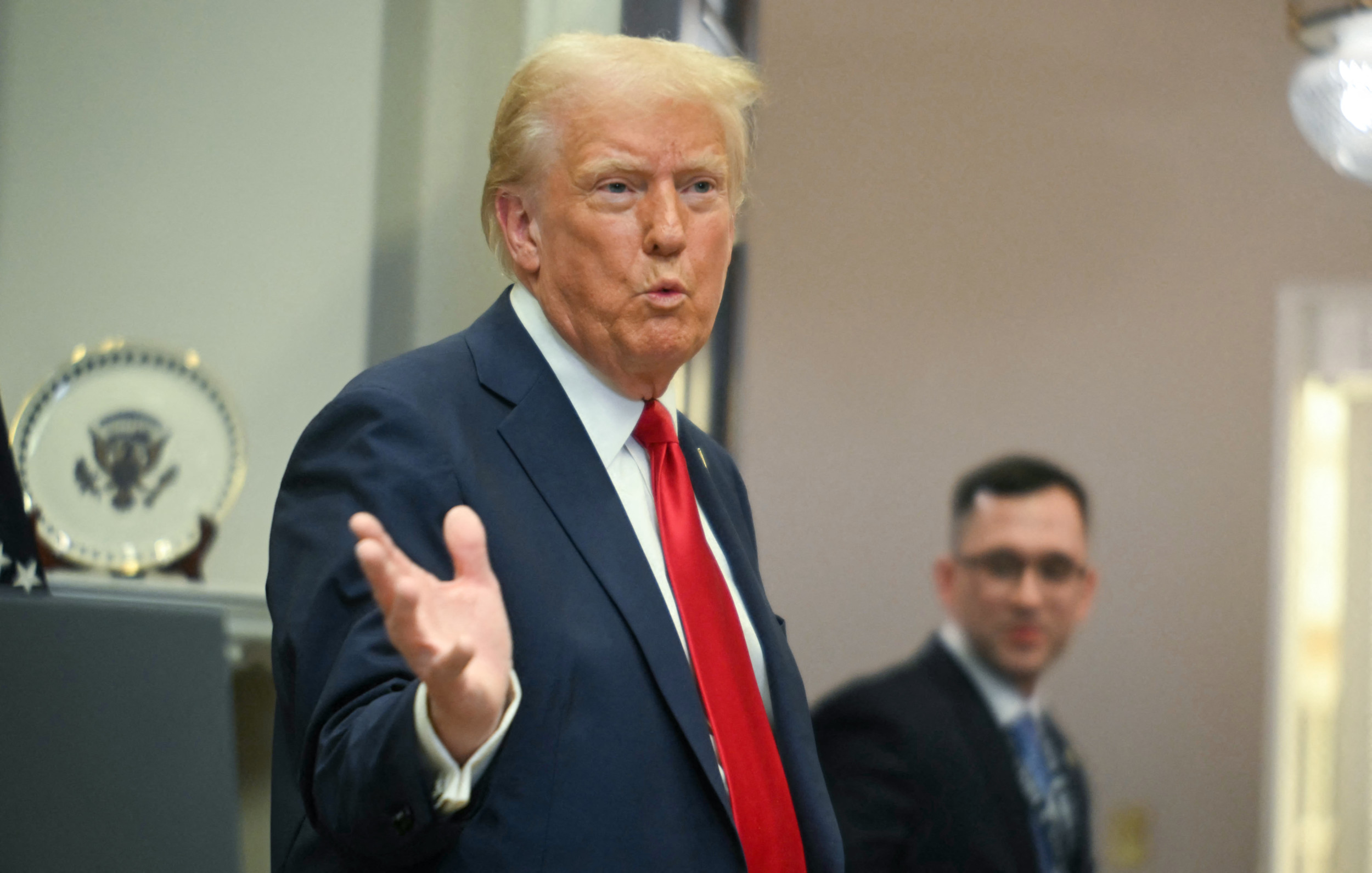President Donald Trump has announced he plans to create a new "External Revenue Service" (ERS) during his second term, which began on Monday.
Why It Matters
Trump has been adamant that his administration will impose a range of higher tariffs on imports entering the U.S., sparking a war of words with neighboring Canada and prompting concern from trade analysts.
In his inaugural address, Trump committed to implementing tariffs, saying that foreign nations would bear the financial burden of these trade penalties. However, it should be noted that such taxes are currently paid by domestic importers.
What Is the External Revenue Service?
Trump announced his intention to create the new federal department on Truth Social, writing: "I will create the EXTERNAL REVENUE SERVICE to collect our Tariffs, Duties, and all Revenue that come from Foreign sources. We will begin charging those that make money off of us with Trade, and they will start paying, FINALLY, their fair share."
How exactly the ERS will operate remains to be seen, but it is likely to offer the same function as the preexisting Department of Commerce and the U.S. Customs and Border Protection (CBP), the latter of which is overseen by the Department of Homeland Security. Both collect tariff revenue from importers.

Newsweek has contacted the White House for comment via email outside of regular working hours.
"The creation of this new agency seems largely unnecessary because existing government agencies already perform these functions," Michael Fahey, CEO and founder of Fahey Communications, a national PR firm specializing in political campaigns, media relations and crisis communications, told Newsweek.
Consumer Brands Association vice president of campaigns and special projects Tom Madrecki said at a webinar last week: "CBP, as directed by Treasury, already collects tariff revenue, so I don't know what a new External Revenue Service will be doing apart from moving desks and relocating IT."
Who Might Trump Target With the ERS?
Trump said in an Oval Office signing ceremony Monday evening that his administration will impose 25 percent tariffs on neighboring Mexico and Canada, beginning on February 1.
Considerably higher charges are expected on goods from China, which Trump has singled out as a trade adversary, threatening tariffs of as much as 60 percent during his presidential campaign.
Can the US Collect Money From Foreign Nations Through the ERS?
The specifics of what the ERS will do under the Trump administration are not yet clear. However, unless the proposed government agency is given a role outside of collecting tariffs, it would only be collecting money from U.S. companies that are responsible for paying the levies, which then goes to the U.S. Treasury.
What People Are Saying
Trump told supporters at Capital One Arena in Washington on January 20: "Tariffs are going to make us rich as hell. It's going to bring our country's businesses back that left us."
Fahey told Newsweek: "This proposal appears to be part of Trump's more extensive strategy to portray tariffs on foreign imports as a means of offsetting costs for his policy agenda and, at the same time, to appeal to his base with trade-related tough talk."
Former U.S. diplomat and political scientist Michael Montgomery told Newsweek: "Going forward, if America is going to be collecting more tariffs, and especially if there is movement in Trump's desired direction of substituting tariffs for the income tax as the primary means of financing government, it would make sense to place responsibility for collecting those tariffs in an organization specializing in tax collection."
Political analyst Arieh Kovler said on X, formerly Twitter: "This is basically a language scam. Tariffs and duties are paid by the importer, the U.S. company bringing in the goods. It isn't "external revenue" and calling the customs agency an "external revenue service" is just another way of tricking people."
What Happens Next
Any creation of a new federal agency requires an act of Congress and Republicans now hold the majority in both the House and the Senate.




















 English (US) ·
English (US) ·